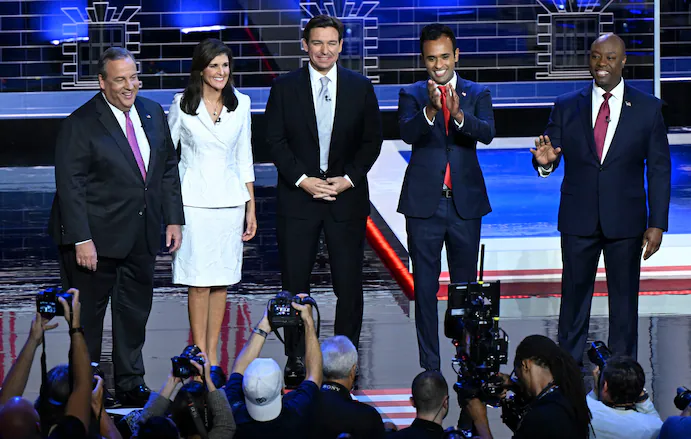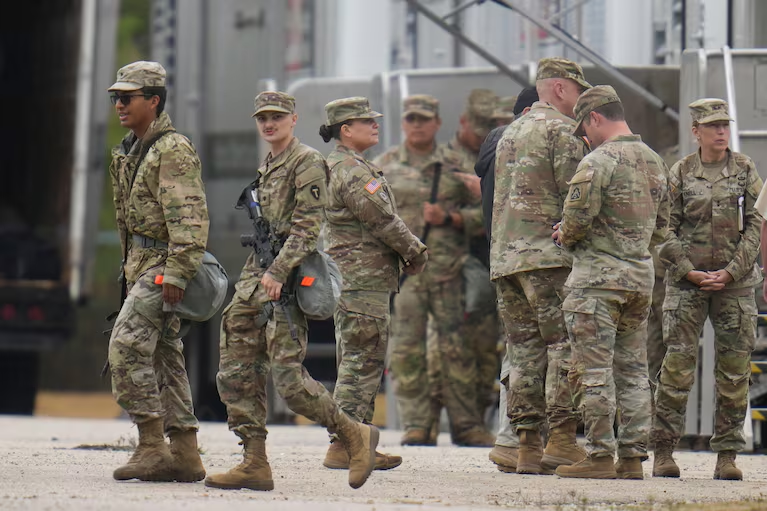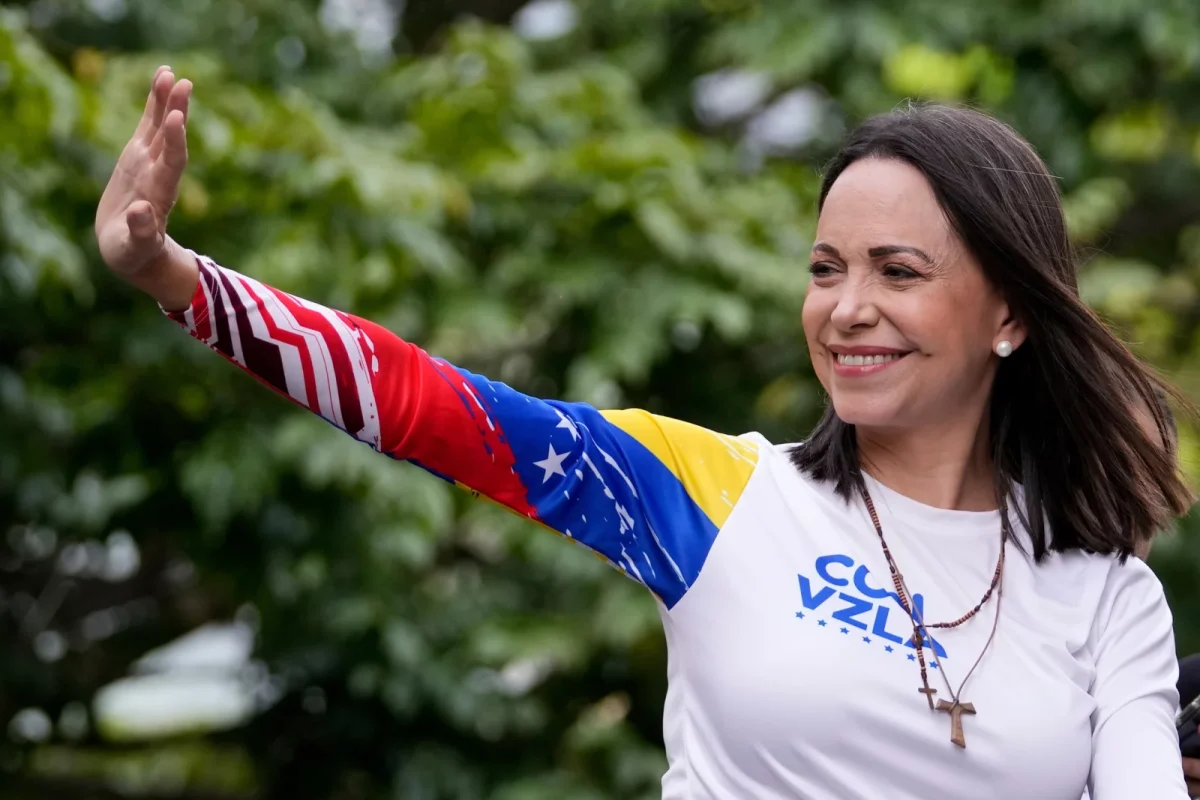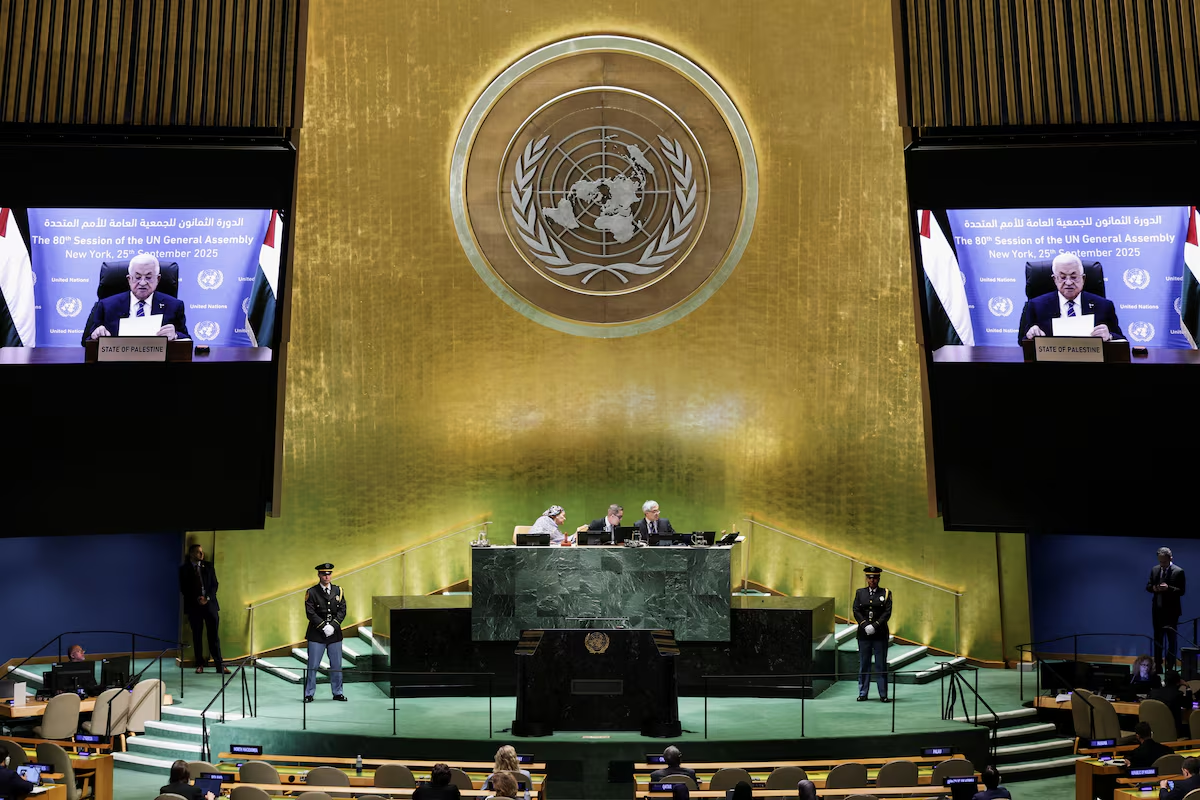The third Republican Presidential debate happened on Nov. 9, and there are some important takeaways.
First, it’s worth noting that one of the candidates on stage, Tim Scott, has withdrawn from the race since the debate. This outcome was expected as Scott was just barely able to meet the requirements of the third debate.
Scott’s chance at the nomination was most likely gone once the super PAC supporting him cut future funding once they felt his chances of rising in the polls were slim.
While Scott brought a cheery and hopeful message to the Republican debate and somewhat less vitriol, his actual beliefs didn’t stick out from the rest significantly. On issues of immigration and the border to support Israel, the words Scott used might have differed from other candidates, but the substance was mostly the same.
The biggest difference between Scott and other candidates was his support for Ukraine. Out of the five candidates on that stage, three, including Scott, showed strong vocal support for continuing aid to Ukraine, while the other two were heavily against supporting Ukraine in their war against Russia.
With Scott gone, that leaves the nomination field split between support for Ukraine and against it. This could be important for the future of U.S. aid to Ukraine and the Ukraine war because the U.S. is a significant supporter of Ukraine.
Most of the talking points were the same, concerning statements about many issues like militarizing the southern border and shooting anyone who attempts to cross without assessing their intentions. The most notable issue talked about in this debate was the conversation around Israel’s ethnic cleansing of Palestine.
Every candidate except Vivek Ramaswamy voiced intense support for Israel’s invasion of Palestine despite the immense numbers of civilians killed in Palestine by the Israel Defense Force. Ron DeSantis even said he’s “sick of the media, sick of hearing other people blaming Israel, just for defending itself.”
This mirrors a later remark from DeSantis. When the question of dealing with antisemitism came up, he decided to critique Biden’s initiative to combat what DeSantis calls “so-called islamophobia.”
The responses from the nominees give a general sense that they don’t consider the lives of Muslim people or Palestinians to be worth the same as Jewish or Israeli lives.
One concerning statement came from Chris Christi. When asked about dealing with islamophobia, he said he went to mosques after 9/11 to meet with the leaders and members of the mosques to protect them if they follow the law. The issue here is that Christi’s answer was in response to a question about protecting Muslim Americans, and there was a base assumption that Muslim people might be dangerous.
What was more concerning than Christi’s answer itself is that it was by far the most supportive of Muslim people out of any nominee. Besides this answer, no one on stage acknowledged that Palestinian civilians were also being unjustly killed and that hate crimes were being committed against Muslim people.
It was good to see a strong opposition to antisemitism. However, with how politicized the topic is, it’s hard to tell if the candidates are only referring to antisemitism or if they’re also opposing people supporting Palestinians and calling for a ceasefire.









